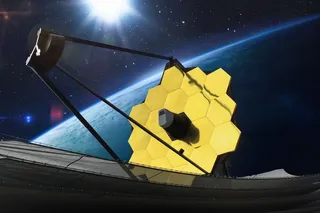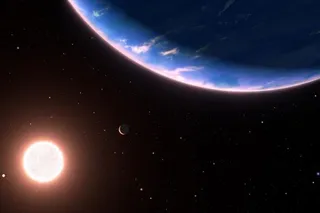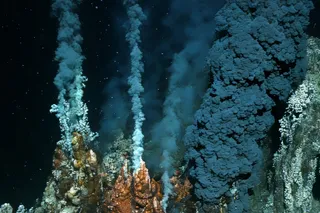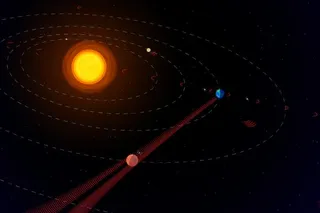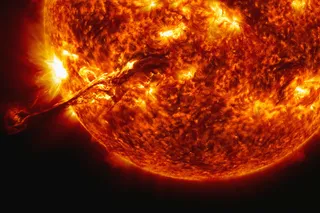For the first time, carbon dioxide has been detected in the atmosphere of an exoplanet, astronomers working with
report. Although the Jupiter-sized planet, whichclosely orbits the starHD 189733 about 63 light-years from Earth,
is much too hot to support life, scientists are hailing the discovery as an exciting technical achievement.
“In that context, the carbon dioxide measurement constitutes a dress rehearsal …for our long-term goal of trying to detect signs of life or signs of habitability on terrestrial-mass planets or super Earths in the habitable zone,” [Science News] says Mark Swain of
NASA’s Jet Propulsion Laboratory. Researchers deduced the presence of carbon dioxide by measuring the planet's light spectrum with the Hubble's Near Infrared Camera and Multi-Object Spectrometer (NICMOS). To isolate the light spectrum coming from the planet, researchers used a method known as "secondary transit."
This involves recording the light spectrum of the planet and ...







